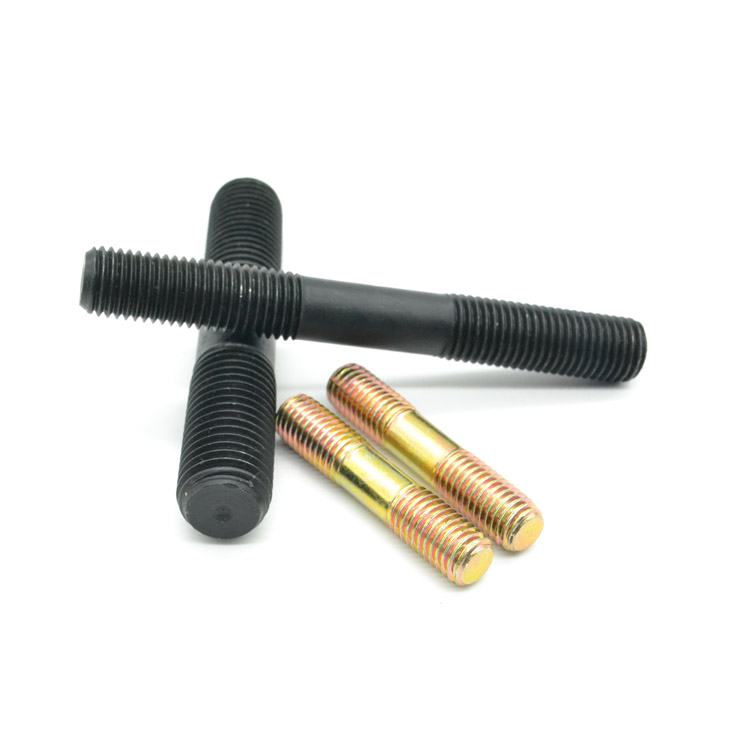Selecting the Right M14 Bolts for Your Next Project or Repair Needs
Oct . 08, 2024 20:04 Back to list
Selecting the Right M14 Bolts for Your Next Project or Repair Needs
Understanding M14 Bolts A Comprehensive Guide
M14 bolts are a fundamental component in various engineering and construction applications. Known for their strength and reliability, these bolts are widely used in a variety of industries, from automotive to civil engineering. In this article, we will explore the characteristics, applications, and advantages of M14 bolts, providing a comprehensive overview for professionals and enthusiasts alike.
What are M14 Bolts?
The designation M14 refers to the metric system, indicating that the bolt has a nominal diameter of 14 millimeters. The 'M' signifies that it is a metric bolt, which is commonly used in countries that follow the metric system. M14 bolts come in various grades, each denoting different material properties and strength levels. Common grades for steel M14 bolts include 8.8, 10.9, and 12.9, with higher numbers indicating greater tensile strength.
Characteristics of M14 Bolts
M14 bolts feature a hexagonal head, allowing for easy tightening and loosening with standard tools. They are available in different lengths, which makes them versatile for various applications. Additionally, M14 bolts can be manufactured from a range of materials, including carbon steel, stainless steel, and alloy steel. The choice of material can significantly affect the bolt's performance, especially in corrosive environments where stainless steel or coated bolts are preferable.
One of the standout features of M14 bolts is their impressive load-bearing capacity, which makes them suitable for high-stress scenarios. The coarse threaded design also aids in quick installation and provides strong grip under load.
Applications of M14 Bolts
m14 bolts

M14 bolts are used extensively in many sectors. In the automotive industry, they are commonly found in engine components, suspension systems, and chassis assembly, where durability and strength are critical. In construction, M14 bolts are used in heavy machinery, structural frameworks, and even in the installation of bridges. Their reliability makes them a go-to option for securing segments in both permanent and temporary structures.
In the field of manufacturing, M14 bolts can be critical in assembly lines and machinery setups. Their ability to endure vibrations and heavy loads without loosening is essential in operations that require precision and stability.
Advantages of Using M14 Bolts
One of the main advantages of M14 bolts is their strength-to-weight ratio. Compared to larger bolts, M14 bolts provide significant strength without adding excessive weight, making them a practical choice in applications where weight constraints are important.
Another advantage is their compatibility with standard tools. M14 bolts can be easily tightened or loosened using typical wrenches, reducing the time and effort required for installation and maintenance. Additionally, the availability of various lengths and material grades allows for customization to suit specific project requirements.
Conclusion
In summary, M14 bolts are a vital component in a multitude of applications across various industries. Their strength, reliability, and versatility make them an indispensable part of engineering and construction practices. Whether you are working on a complex machinery assembly, a structural project, or automotive repairs, understanding the specifications and advantages of M14 bolts can enhance your project's success. Choosing the right bolt for the task at hand can lead to improved performance, safety, and longevity of the structures and systems you design and build. As a result, M14 bolts continue to play a crucial role in modern engineering solutions.
Latest news
-
High-Quality Panel Stud Bolt Reliable Panel Stud Bolt Factory & Suppliers
NewsJul.08,2025
-
High-Precision Fine Thread Locknuts Manufacturer & Supplier Custom Solutions
NewsJul.08,2025
-
PH Imperial Stud Bolt – High Strength Fasteners from Leading Supplier & Factory
NewsJul.07,2025
-
High-Quality Allen Wrench Bolts Leading Factory, Company & Suppliers
NewsJul.07,2025
-
Wholesale Ball Stud Bolt - High Quality Supplier & Factory Price Reliable Wholesale Ball Stud Bolt Company
NewsJul.06,2025
-
High-Strength Alloy Bolts Manufacturer & Supplier Quality Alloy Fasteners Factory
NewsJul.06,2025
